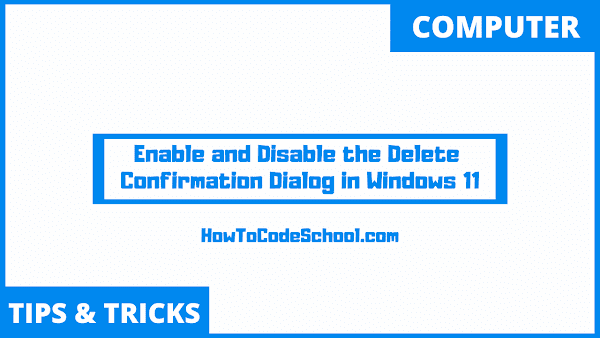Ask To Delete Before Deleting: A Comprehensive Guide For Windows 11 2025
Ask to Delete Before Deleting: A Comprehensive Guide for Windows 11 2025
Related Articles: Ask to Delete Before Deleting: A Comprehensive Guide for Windows 11 2025
Introduction
In this auspicious occasion, we are delighted to delve into the intriguing topic related to Ask to Delete Before Deleting: A Comprehensive Guide for Windows 11 2025. Let’s weave interesting information and offer fresh perspectives to the readers.
Table of Content
Ask to Delete Before Deleting: A Comprehensive Guide for Windows 11 2025

Introduction
As technology advances, the amount of digital data we accumulate continues to grow exponentially. This has led to concerns about data privacy and security, particularly when it comes to the deletion of sensitive information. Microsoft has recognized this need and has introduced a new feature in Windows 11 2025 called "Ask to Delete Before Deleting." This feature provides an additional layer of protection by prompting users to confirm their intention to delete files and folders before they are permanently removed from the system.
How Ask to Delete Before Deleting Works
The Ask to Delete Before Deleting feature is enabled by default in Windows 11 2025. When a user attempts to delete a file or folder, a confirmation dialog box will appear, asking the user to confirm the deletion. The user can choose to either confirm the deletion or cancel the operation.
If the user confirms the deletion, the file or folder will be moved to the Recycle Bin. The user can then choose to permanently delete the file or folder from the Recycle Bin or restore it to its original location.
Benefits of Ask to Delete Before Deleting
The Ask to Delete Before Deleting feature offers several benefits, including:
- Reduced risk of accidental deletion: The confirmation dialog box helps to prevent users from accidentally deleting important files or folders.
- Improved data security: By requiring users to confirm the deletion, the feature helps to protect sensitive data from unauthorized access or deletion.
- Enhanced user control: The feature gives users more control over the deletion process, allowing them to make informed decisions about what files and folders to delete.
FAQs About Ask to Delete Before Deleting
- Can I disable the Ask to Delete Before Deleting feature?
Yes, the feature can be disabled in the Windows 11 2025 settings. However, it is recommended to keep the feature enabled for increased data protection.
- What happens if I accidentally confirm the deletion of a file or folder?
If you accidentally confirm the deletion of a file or folder, it will be moved to the Recycle Bin. You can then choose to restore the file or folder to its original location.
- Can I recover deleted files from the Recycle Bin?
Yes, you can recover deleted files from the Recycle Bin by right-clicking on the file or folder and selecting "Restore."
Tips for Using Ask to Delete Before Deleting
- Be mindful of what you delete: Always double-check the files and folders you are deleting to ensure that you do not accidentally delete important information.
- Use the Recycle Bin: If you are unsure whether you want to permanently delete a file or folder, move it to the Recycle Bin instead. This will give you time to recover the file or folder if you change your mind.
- Consider using a data recovery tool: If you accidentally delete an important file or folder, you can use a data recovery tool to attempt to recover it.
Conclusion
The Ask to Delete Before Deleting feature in Windows 11 2025 is a valuable tool for protecting sensitive data and preventing accidental deletions. By requiring users to confirm the deletion of files and folders, the feature provides an additional layer of security and user control. It is recommended to keep the feature enabled and to follow the tips outlined in this article to ensure the safe and secure deletion of data.








Closure
Thus, we hope this article has provided valuable insights into Ask to Delete Before Deleting: A Comprehensive Guide for Windows 11 2025. We appreciate your attention to our article. See you in our next article!